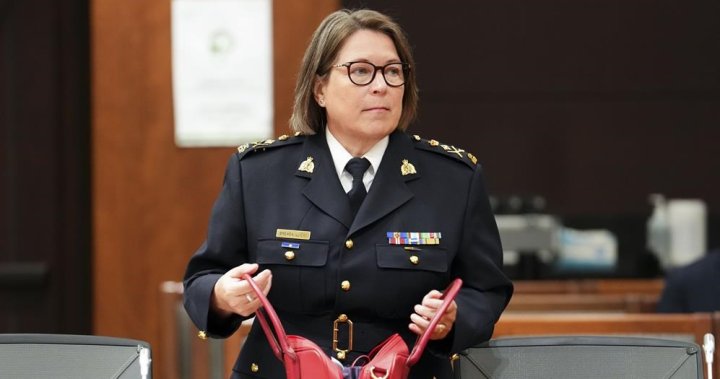
Nova Scotia RCMP ‘dysfunctions,’ labour shortages predated 2020 mass shootings
Global News
Most of Nova Scotia's senior RCMP staff believed there were 'dysfunctions' prior to the 2020 mass shootings, according to a consultant's report prepared last year.
Most of Nova Scotia’s senior RCMP staff believed there were “dysfunctions” at their division prior to the 2020 mass shootings and felt abandoned by their superiors in the aftermath, according to a consultant’s report prepared last year.
The Sept. 30, 2021, summary of a “wellness assessment” of the staff was released publicly on Monday at the inquiry investigating the mass shooting. It says most of the 24 senior officers and civilian leaders interviewed last summer had complained about deficiencies in the Nova Scotia Mounties’ operational capacity before the shootings.
“Almost all spoke at length about the RCMP’s … major dysfunctions which they said had been allowed to exist over many years,” the report says.
The document was released as Lee Bergerman, the retired commanding officer for the province, testified Monday before the inquiry, which is examining how an alcoholic denturist with a record of domestic violence managed to create a replica police vehicle, arm himself with semi-automatic guns, and engage in a 13-hour rampage that resulted in 22 murders on April 18-19, 2020.
The summary says the wellness assessment was commissioned after reports of exhaustion, “lack of collaboration” among senior staff, and “overall purported low morale” reached RCMP national headquarters. The report, however, says interviewers made no attempt to verify the truth of what they were told.
RCMP staff told interviewers that funding formulas between the province and the Mounties hadn’t kept pace with the costs for emergency response teams.
“Many (senior staff) pointed to provincial authorities such as the ministers of justice … who they said had for years underfunded the RCMP” and who “are looking for a bargain from Ottawa but still want to have access to ‘ready resources … deployed whenever called.'”
Some of the officers told the Ottawa-based consultant, Quintet Consulting Corp., that sick leave for general duty officers sometimes went on “excessively,” and there was “little or no mechanism to replace missing resources without ‘robbing’ a person from somewhere else.”





















 Run 3 Space | Play Space Running Game
Run 3 Space | Play Space Running Game Traffic Jam 3D | Online Racing Game
Traffic Jam 3D | Online Racing Game Duck Hunt | Play Old Classic Game
Duck Hunt | Play Old Classic Game











